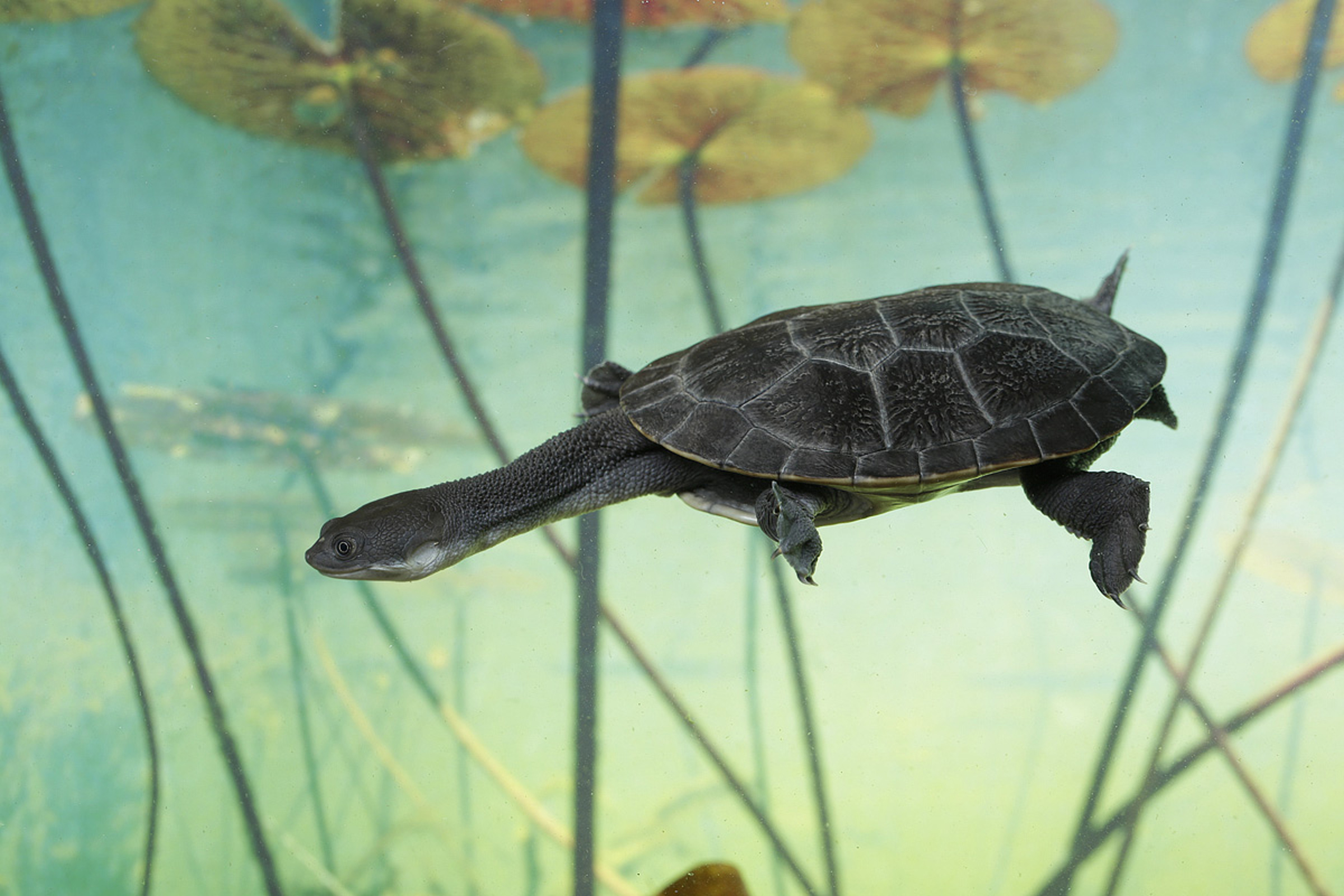13 endangered snake-necked turtles repatriated back to Indonesia
Sign up now: Get ST's newsletters delivered to your inbox

The turtles were initially sent to the Singapore Zoo in 2015 from breeding programmes in the US and Austria.
PHOTO: MANDAI WILDLIFE GROUP
SINGAPORE - Thirteen critically endangered Roti Island snake-necked turtles were successfully repatriated from Singapore back to their native country, Indonesia, last September.
The turtles - experts believe they may be extinct in the wild - were initially sent to the Singapore Zoo in 2015 from breeding programmes in the United States and Austria.
This is the first repatriation of the species, marking a major milestone in efforts to boost the wild population, conservation organisation Mandai Nature, Wildlife Conservation Society - Indonesia Programme (WCS-IP) and Singapore Zoo said on Wednesday (Jan 19).
The efforts are led by Indonesia's Ministry of Environment and Forestry (MOEF) and Natural Resources Conservation Agency (BBKSDA) in the East Nusa Tenggara province.
The turtles, which have settled in a breeding facility in Kupang in the province, are now part of the first structured conservation breeding programme in Indonesia. The offspring will be raised under human care from egg development, with the aim of reintroducing them into their native wild habitats.
The organisations said such programmes help to increase their chances of survival in the wild.
The MOEF director general for natural resources and ecosystem conservation, Mr Wiratno, said: "This repatriation is the first step in restoring the Roti snake-necked turtle population in its natural habitat, as well as showing that species conservation is a concern for the international community."
The turtle species, which has not been seen in its natural habitat since 2009, has suffered from the destruction of its wetland habitat for agriculture, and desirability in the global pet trade, the statement said.
WCS-IP's country director, Dr Noviar Andayani, said water supply on Roti Island must be maintained to protect the lake habitat of the turtles, as the land there is arid.
She said: "With our government partners, WCS-IP will work hand-in-hand with the communities around the lakes... We will use sound science to design our management interventions and promote sustainable economic practices around the lakes."
Before the turtles were returned to Indonesia, they were held in the Singapore Zoo which houses the only assurance colony for the species in Asia.
Dr Sonja Luz, vice-president of conservation, research and veterinary at Mandai Wildlife Group, said repatriation is something the organisations have been working on since the development of the conservation plan for the turtles five years ago.
WCS-IP will be working with BBKSDA to strengthen support for the local community to conserve the turtles and protect the habitats.
"These include ongoing outreach visits to build trust with key village figures and training villagers to conduct community-based patrols around the lakes," it said.
Mandai Nature will support the two organisations to develop reintroduction guidelines for the turtles. They will work on long-term monitoring protocols so conservationists can track the progress of the turtles in the wild.
Jurong Bird Park, which is under the Mandai Wildlife Group, has also helped with the repopulation of the Luzon bleeding-hearts dove, which is nearly extinct in the Philippines.
It bred 10 doves and sent them back home in 2020.


